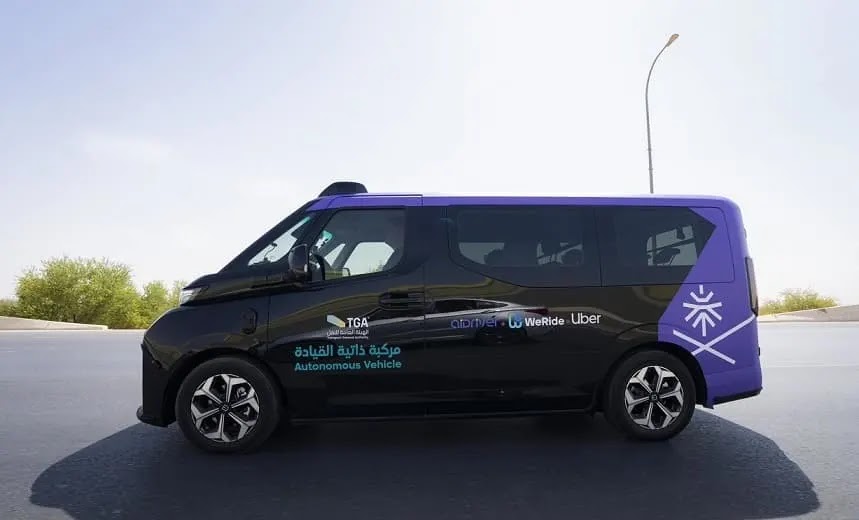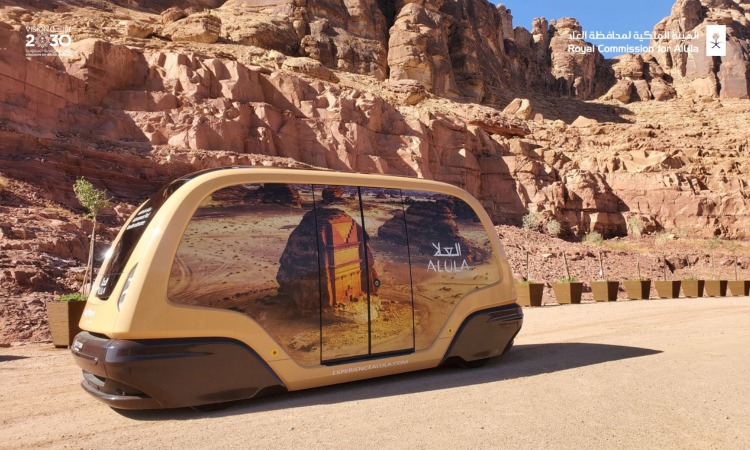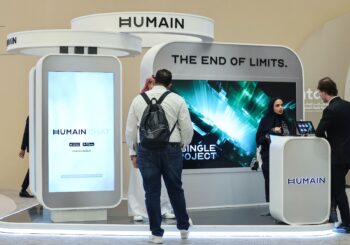As part of its Vision 2030 initiative, Saudi Arabia officially launched its first operational trials of self-driving vehicles in Riyadh back in July 2025.
Headed by the Transport General Authority (TGA), the initiative aims to create a smart, safe, and sustainable transportation ecosystem aligned with the Kingdom’s economic diversification goals.
Self-driving vehicles can enhance sustainability by optimizing driving behaviors, minimizing fuel consumption, and decreasing greenhouse gas emissions through efficient routing and integration with electric propulsion systems.
Overview of the Pilot Program
The 12-month pilot program, launched on 23 July, 2025, consists of autonomous vehicles operating across seven strategic locations in Riyadh, including King Khalid International Airport, Roshn Business Front, and Princess Nourah University.

These vehicles are equipped with advanced navigation systems, real-time traffic sensors, and AI-driven decision-making capabilities.
To ensure passenger safety during this initial phase, trained onboard safety officers monitor system performance and user experience.
The introduction of these autonomous vehicles is expected to enhance urban mobility, reduce traffic congestion, and lower accident rates.
While studies indicate that human error is the primary cause of road accidents worldwide, Saudi Arabia views autonomous vehicle technology as a solution to enhance safety, aligning with its broader Vision 2030 objectives of smarter mobility, lower emissions, and improved traffic efficiency.
The Kingdom is investing heavily in infrastructure upgrades (in October 2023, the NEOM Investment Fund (NIF) committed USD 100 million to Pony.ai, a leading global autonomous driving company.
This partnership aims to support the development of essential technologies for autonomous vehicles, such as smart traffic signals, road sensors, and high-speed 5G networks.
Such infrastructure enhancements are crucial for the efficient operation of autonomous vehicles. For instance, smart traffic signals could facilitate better communication between vehicles and traffic systems, allowing for smoother traffic flow and reducing wait times at intersections. The deployment of High Definition (HD) maps and real-time data sharing will further enhance navigation and safety.
The TGA’s introduced “Regulatory Sandbox” in 2023, a controlled testing space that allows both startups and established companies to experiment with emerging transport models, such as autonomous vehicles, while operating under regulatory oversight.
Additionally, the Regulatory Sandbox enables companies to test new technologies in a real-world environment without the constraints of existing regulations, which may not yet account for the complexities of autonomous driving.
The potential benefits of autonomous vehicles extend beyond technological advancements. The initiative is expected to contribute to economic diversification by opening new avenues for investment and job creation.
Moreover, the integration of autonomous vehicles into public transport systems could lead to reduced operational costs and improved service efficiency. This transition may also support local businesses by enhancing accessibility to different parts of the city, making it easier for residents and tourists to navigate urban spaces.
Environmental Sustainability
By integrating electric propulsion technologies and renewable energy sources, the Kingdom aims to support its environmental protection efforts and reduce carbon emissions.
In 2023, Saudi Arabia’s CO₂ emissions reached approximately 623 million metric tons. According to the Saudi Green Initiative, its national target is to cut emissions by 278 million metric tons annually by 2030, on the path toward net-zero by 2060.
The use of autonomous shuttles and buses could also help reduce private car dependency, which is notable considering that Saudi Arabia’s General Authority for Statistics reported an average of 1.38 cars per household in 2019.
As the trials progress, the Kingdom anticipates a gradual expansion of autonomous vehicle use in specific areas, such as universities, residential complexes, and tourist destinations.
In the coming decade, it is expected that autonomous vehicles will be a part of the public transport landscape and be integrated into smart city applications, including ride-sharing services and on-demand transportation models.








Comments (0)